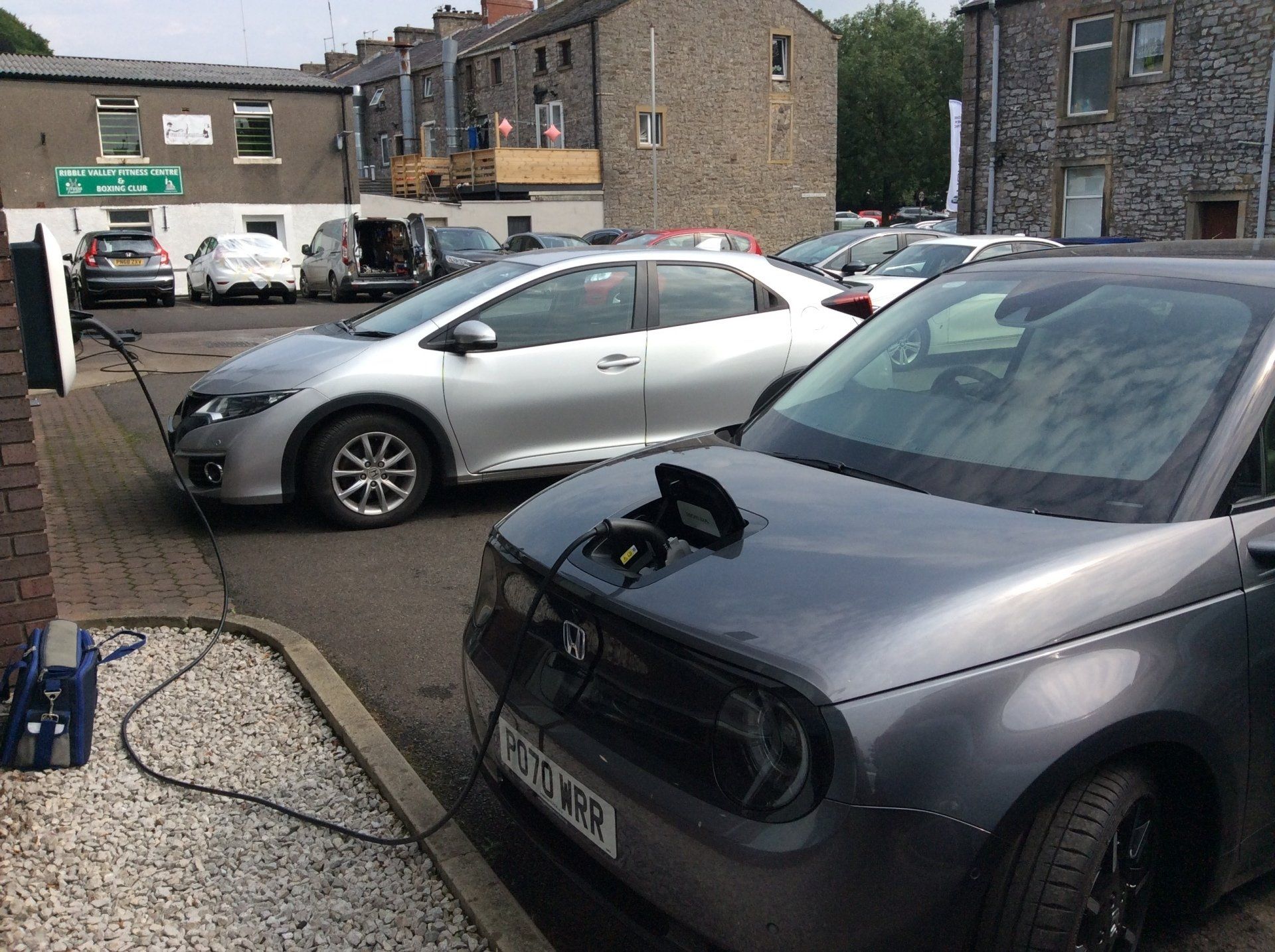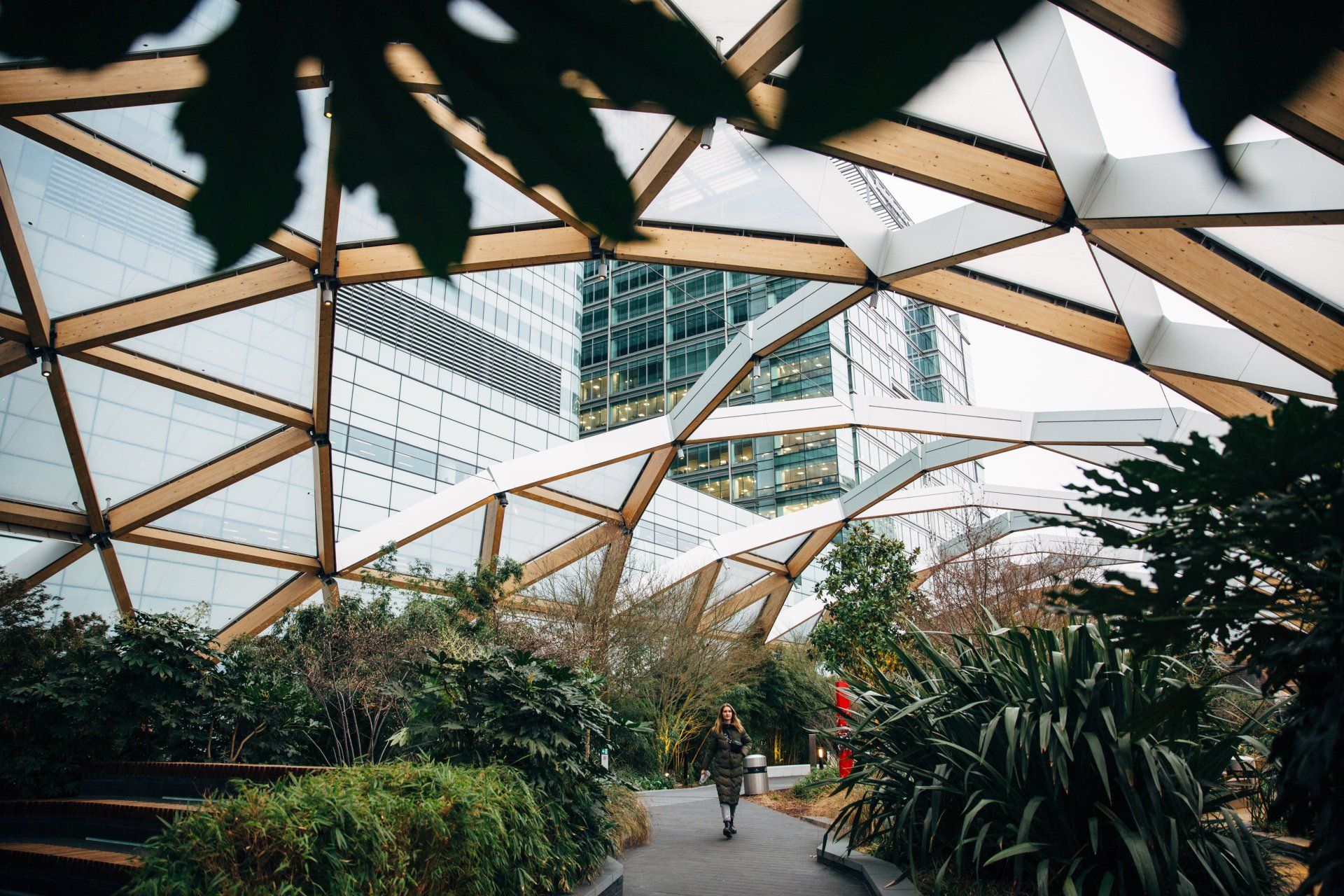Follow us
Getting EV Ready In a
Post-COVID World
Find out how we helped two Honda dealerships prepare for the arrival of their new
electric vehicle range...
The power of dreams
The power of dreams
Honda is a brand that has become synonymous with technology and innovation. So it’s no surprise that the Japanese car manufacturer known for “the power of dreams” continues to make strides with its growing portfolio of battery-powered cars.
Greenacre Honda Clitheroe has been part of the Honda franchise in Lancashire for over forty years. But as the range of cars increased, and many more customers chose Honda, the business expanded to include Greenacre Honda Blackburn in 2005. Along with the sale of new and used Honda cars, both dealerships provide a full aftersales service to the exacting standards you would expect from Honda.
Then earlier this year, with the appetite for electric vehicles increasing and the next generation of Honda electric vehicles planned for the next two years, the time was right to get EV-ready. In such a business critical year, they needed a partner they could trust to move quickly and gets things right first time.
Hassle-free charging point installations
At British Gas, we’ve been busy integrating EV charging into businesses since 2012 when we adopted electric in our own commercial fleet. It means when it comes to installing electric charging points in businesses, we know how to make things easy. For Greenacre Honda Clitheroe and Greenacre Honda Blackburn, that included overcoming a few challenges posed by COVID-19.
The first step was making sure all work could be conducted in accordance with COVID-19 safe working practices, alongside the standard construction safe working practices. Once these issues were ironed out, the installations were completed like clockwork. Graeme Edmondson, Managing Director at the Greenacre Honda, told us everything was in place in time for both dealerships to meet their fleet delivery of new EV cars ready for client demonstrations and customer deliveries.
Minimising disruption and downtime
Before work got underway Graeme shared some concerns that there may be considerable downtime, with no electricity causing disruption to phone lines, internet and computer systems at both dealerships. However, our onsite team of experienced engineers established a mutually proactive working relationship to make sure this wasn’t the case.
Routing cables, new panels and earth safety devices were installed in a busy garage workshop location at both sites. And new chargers were installed at customer access points on the dealership forecourts without disruption to the core business functions.
“The two engineers were courteous, knowledgeable and their workmanship was first-class with no downtime for us. The installation went better than we expected and exceeded our expectations.”
We know first-hand what’s involved in adopting electric. That’s why we offer end-to-end charging solutions that can take the pressure off your business. So, from charge point installation and management to servicing and repair, we’ll make EV charging easy and affordable.
With British Gas, you’ll benefit from:
- Meeting mandated dealer standards - Your installation will be completed to your approved standards
- Reassurance of a trusted brand - You can feel confident we know what we’re doing
- National coverage - We have a large network of EV experts ready to start your installation now
- Virtual audit technology - We can carry out detailed site surveys remotely, without the need for a face-to-face visit






